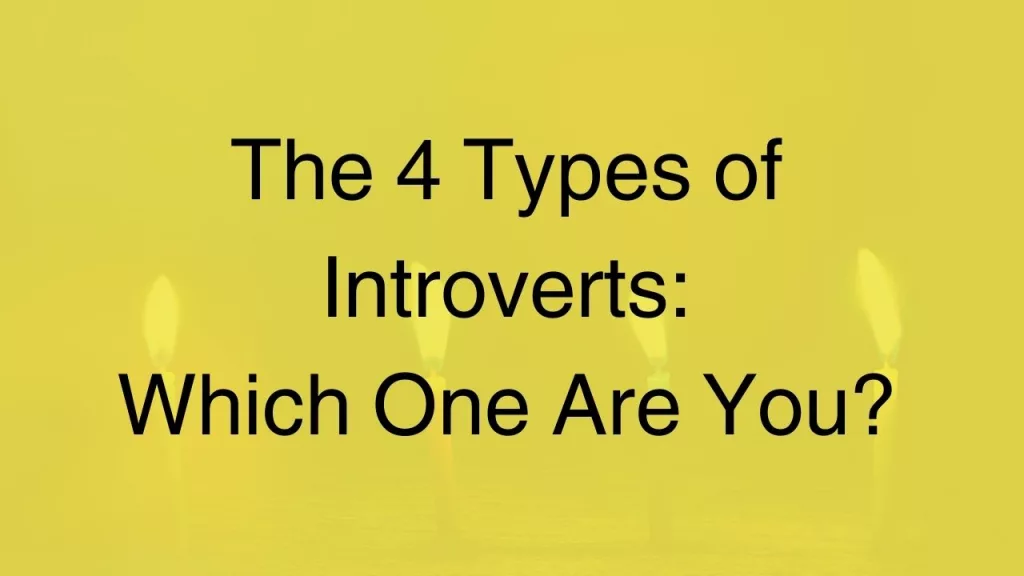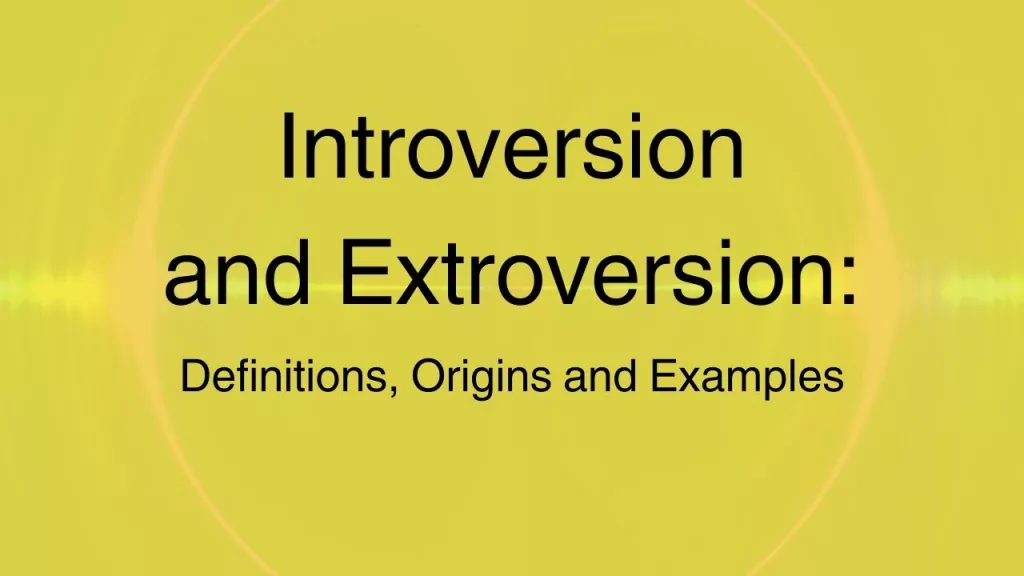Introversion is frequently misunderstood as simply shyness or social withdrawal, but in reality, it’s a rich and multi-dimensional trait that encompasses much more than just a preference for solitude.
There are four distinct types of introverts:
- social,
- thinking,
- anxious,
- restrained.
Each with unique characteristics and ways of interacting with the world. While all introverts share the common need for solitude to recharge, they differ in how they approach social situations, decision-making, and their overall mental and emotional landscape.
Understanding which type you are can go a long way to understanding your personality and learning how to manage and use it to your advantage.
Before we begin, it is important to understand that there is no best option. No type of introvert is better than the others; they are simply different. If you want more information on introversion and its meaning, read my article: Introversion and Extroversion: Definitions, Origins and Examples.
Let’s begin!
Social Introverts
Although this may sound like a contradiction, it is not. Social introverts prefer to spend time alone but they value small social gatherings with family and friends. They tend to avoid crowds and gatherings because it’s their preference – not because they are anxious or avoidant. Like other introvert types, they value solitude and quieter environments to recharge.
Are you a social introvert?
- Do you prefer small gatherings to large groups and parties?
- Do you value one-to-one conversations over group meetings?
- Do you require time alone to recharge?
- Do you dislike small talk?
If you answered yes to the above, you are likely a social introvert.
Self-care tips for social introverts:
- Control your social schedule. If you have a big event coming up, allocate time before and after to recharge and recover.
- Don’t feel pressured to go to events, parties or gatherings just because they are happening. Set your limits and only go to events that you want to go to.
- Take comfort in your immediate family and friend group, and don’t concentrate too much on the views and opinions of others.
Thinking Introverts
Thinking introverts are daydreamers, often finding peace through studying, reading and researching. They are introspective and often pause to cognate before responding. It’s common for thinking introverts to get lost in thought or ‘mentally disappear’ from conversations by retreating into the mental world.
Thinking introverts tend to be great listeners. They take value in trying to understand another’s point of view or concern. This can sometimes lead to them being mistaken for extroverts, as they are comfortable in one-to-one situations.
Are you a thinking introvert?
- Do you enjoy theorising and studying various subjects?
- Do you often find yourself analysing situations?
- Do you find it easy to listen to others’ ideas, problems or stories?
If you answered yes to the above, you are likely a thinking introvert.
Self-care tips for thinking introverts:
- Be wary of situations where you are prone to overthinking and, if possible, limit them to control your energy.
- Practice breathing exercises for situations where you get stuck in your head. These can range from simple deep breaths to full meditation.
- Write down your thoughts throughout the day. This will help you remember them as well as compartmentalise them to avoid mental blocks and potential anxiety.
Anxious Introverts
Anxious introverts tend to be quieter and more avoidant than other types. They often seek out solitude because it’s their preference, but also because they can feel awkward or shy around people.
Anxious introverts can sometimes appear rude in social situations due to their anxious and avoidant nature. However, this is simply a result of their protective defence mechanism. They tend to avoid social situations for this same reason and do not regularly step out of their comfort zones.
Are you an anxious introvert?
- Do you get anxious before going to a social gathering or party?
- Do you analyse situations and conversations long after they end?
- Do you avoid social settings and instead prefer to remain at home?
- Do you get nervous easily around new people?
If you answered yes to the above, you are likely an anxious introvert.
Self-care tips for the anxious introvert:
- Take note of situations where you feel most anxious. There is likely a correlating factor, which, once understood, can be managed.
- Don’t be afraid to ask for help. Anxiety is normal, and it can be controlled. Speaking to family members, friends, or professionals can help you take steps to control it.
- Love yourself and your personality. Being social is not the be-all and end-all of a happy life, and every personality has its strengths and weaknesses. Focus on your strengths and learn to manage your weaknesses.
Restrained Introverts
Restrained introverts are more guarded than their peers. They wish to protect their energy and time, often having their guard up around others until they get to know them better. They are usually very grounded and think before they act, taking time to analyse situations before making decisions.
This type can sometimes be mistaken as unemotional due to their protective energy. However, they are also steadfast, dependable and dutiful, meaning others often rely on them to get the job done.
Are you a restrained introvert?
- Do you take time to make decisions (big or small)?
- Do you often have unemotional reactions to events before understanding them better?
- Do you prefer predictable to spontaneous activities?
Self-care tips for the restrained introvert:
- Make a pros and cons list when making a decision. This can help you see the facts clearly and not get too stressed or anxious.
- Don’t let external pressure or judgment get to you. Love yourself and understand that you are often reserved or restrained for a perfectly natural reason.
- Control your energy and learn to say no when you need to. Although you will likely wish to help others and be dependable, do not do this at the expense of your own time, health or mindset.
Can you be a mixture of all types?
The short answer is yes. More likely than not, your personality spans a range of these four types. However, you will likely fall primarily into one. If unsure, reread the questions above and mark which ones you answer yes to. Alternatively, do further research on the four types and take your time to work out where you fall.
I am primarily a restrained introvert, with some qualities of an anxious and thinking introvert. Knowing this has helped me understand how to protect my energy and plan my day, knowing which situations I can thrive in and which I will need more energy for.
Remember, no one type of introvert is better than another. They all have their strengths and weaknesses.
Final Thoughts
No matter what type you are, it is important to use your personality to your advantage. By understanding which situations you thrive in – and which you do not – you can take a great first step to increasing your confidence and controlling your energy.
Is there anything you would add to the above? Which type(s) are you? Comment below.



